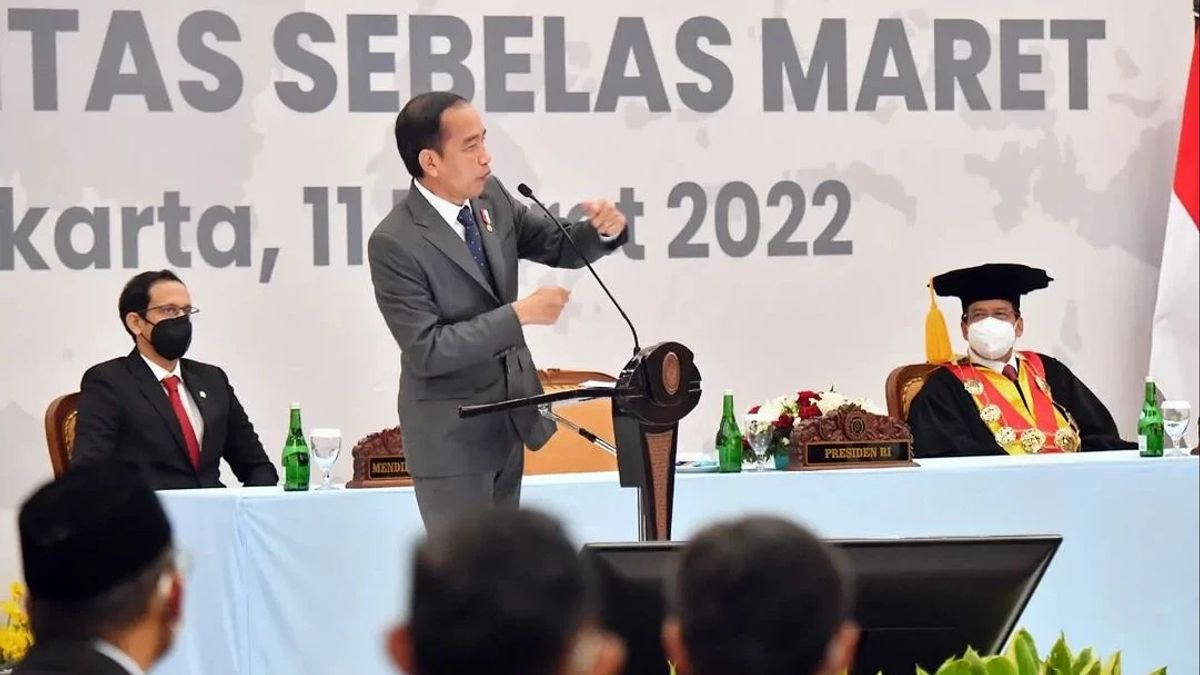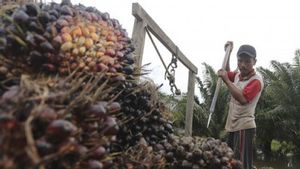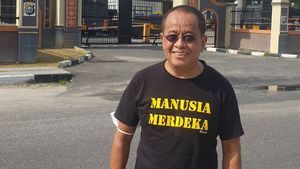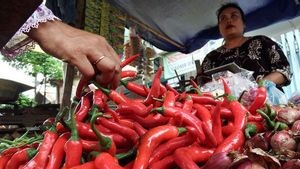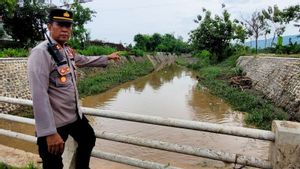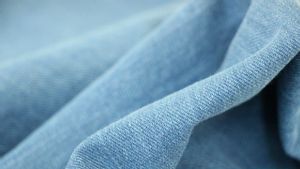SURAKARTA - President Joko Widodo (Jokowi) responded firmly to the European Union's lawsuit against the export ban on Indonesia's crude nickel ore products. He decided to stick to the rules for the stop export of raw materials.
"Since 2020 I have conveyed to all ministers, one by one we have to stop. Nickel is stopped, there is no longer such a thing as exporting nickel raw materials. The raw material is no longer exported. Nickel is stopped", said Jokowi in an open session of the Academic Senate Anniversary Natalis Universitas Selebas Maret (UNS), Friday, March 11th.
Jokowi even instructed his staff to stop the export of other raw material products such as bauxite, tin, and copper. Jokowi said exports of raw materials only made a small profit, so the best decision was to focus on boosting domestic economic growth.
"I have ordered, later this year bauxite will stop so that it will be sued again. Next year stop the copper or tin again so that it will be sued again. It's okay to continue being sued. We don't necessarily lose, but we don't necessarily win", he added, quoted from ERA.
Jokowi explained that the benefits that Indonesia gets when exporting raw materials with finished materials are very different.
When Indonesia exports nickel, said Jokowi, the profit earned is 1 to 1.5 billion US dollars or equivalent to IDR 15 to 20 trillion. With the same payload, when exporting semi-finished or finished materials, Indonesia earned a profit of 20.8 billion US dollars.
"This means, from IDR 15 trillion, it jumps to approximately IDR 300 trillion", said Jokowi.
Jokowi assessed that it was appropriate for Indonesia to ban the export of raw materials because it would improve the domestic economy. Even though he realized it was risky because it was against the will of the European Union.
By stopping the export of raw materials, Indonesia can produce lithium batteries, television batteries, and electric vehicles. That means opening up new jobs.
The potential for domestic investment has also expanded in line with the policy to stop exports of raw materials. Likewise, investments from abroad that enter the country regarding industries that have emerged in the country as a result of this policy.
SEE ALSO:
Jokowi said that the policy that was opposed by the European Union was convened at the G20 Meeting in Rome, Italy, at the end of 2021. In the forum, Jokowi admitted that he was not afraid of the lawsuits addressed to Indonesia due to the policy to stop the export of raw materials.
Jokowi views the rejection of the export ban as a natural course of action. However, he stressed that Indonesia did not want to be a country that for hundreds of years exported raw materials because the profits were small.
"The taxes they get, the job openings they get, what do we get? Yes, we are constantly being scared, we don't sue at the WTO, we don't sue at the WTO. Sue!", he insisted.
Indonesia is known to have been sued by the European Union against the World Trade Organization (WTO). The reason is that the European Union is angry at Indonesia's policy to stop the export of raw materials so that it becomes difficult for the industry in Europe.
The English, Chinese, Japanese, Arabic, and French versions are automatically generated by the AI. So there may still be inaccuracies in translating, please always see Indonesian as our main language. (system supported by DigitalSiber.id)
